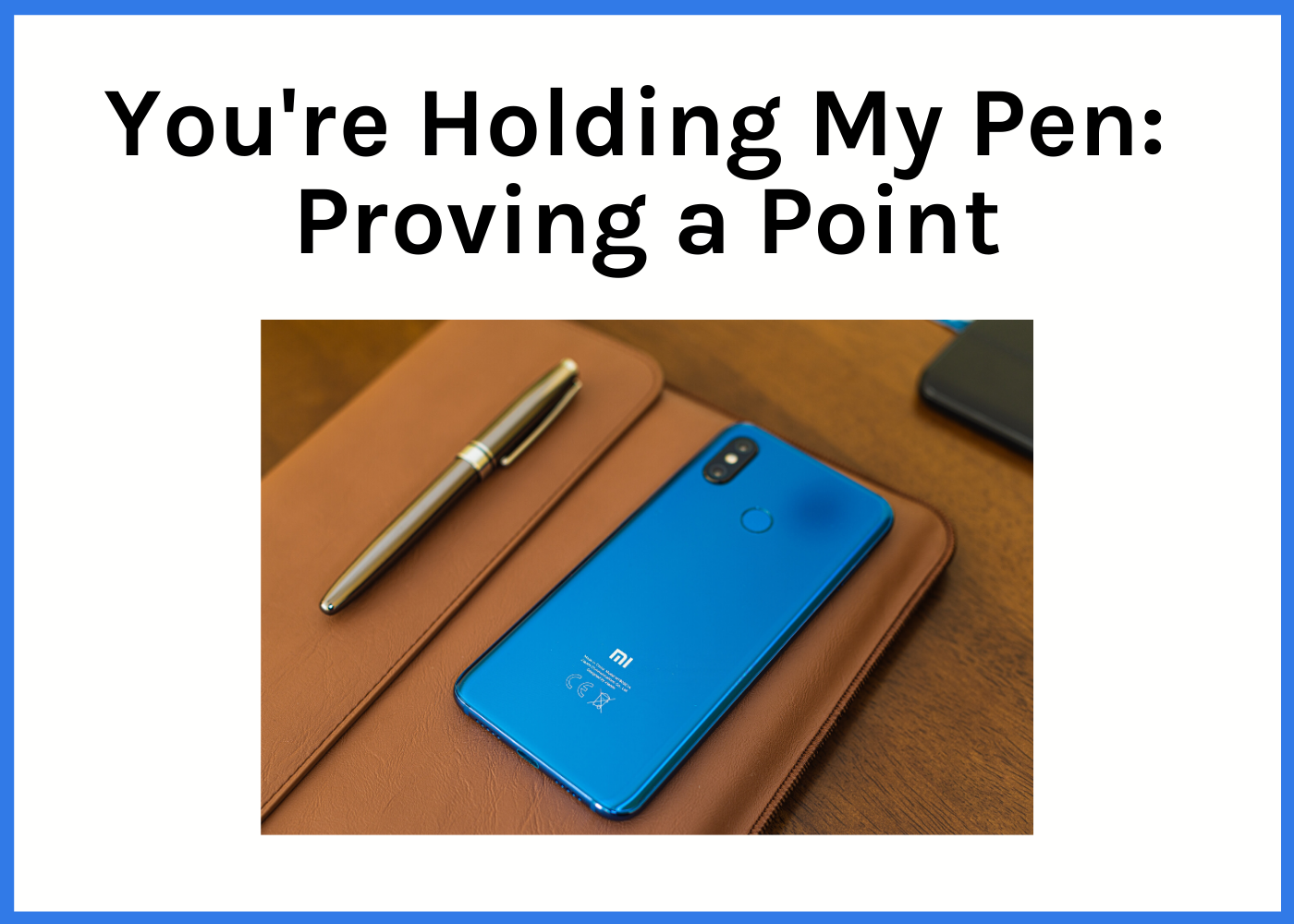You’re Holding My Pen: Proving A Point
The Phone
It was quite a sight. The seasoned police detective had been on the witness stand for awhile. He had testified on direct examination and been cross examined for a while by several lawyers. Then “the pen” happened. “The pen” is one of those moments that makes the courtroom stand still and it did here as well. Want to know what happened? I bet … read on.
One of the state’s arguments was that text messages on a phone found in the defendant’s pocket were sent and received by him. Mind you that none of the texts mentioned his name, initials, nickname nor bore any identifying information that they were sent by him. There was no identifying information that the phone even belonged to the defendant other than the fact that it was in his pocket. The State didn’t know if he had picked it up with plans to use it, picked it up and put it in his pocket or if it was his and he had lent to another. It had no evidence that the phone belonged to him and that the texts were sent by and received by him.
Nevertheless, the state and detective fought to tie those texts to my client. The State’s principle argument was that the phone was in my client’s possession and thus … it must be his and … thus the texts must be his. “The pen” did a lot to disprove.
The Pen
As Neil was cross examining the detective, the detective was fiddling with a pen. I smiled and asked him about the pen. It went something like this …
Q: you’re holding a pen?
A: yes.
Q: where did you get it?
A: it was up here on the stand.
Q: you just picked it up?
A: yes, I guess so.
Q: are you aware that is my pen?
A: no.
Q: So the fact that you’re holding it, tells us nothing about whose pen it is?
A: I guess not.
Holding my pen, “the pen”, the detective had proven our point about the phone. The fact that someone holds or possesses an object tells you very little about who owns it and who was using it previously. The fact that a phone was found on my client at one moment in time tells us little about whose phone it is and who used it to text.
How did this develop? Active listening and paying attention in the moment. I have long advocated that lawyers should while cross examining should avoid being overly wed to a notepad or a list of questions. Being fixed to a set of questions prevents the lawyer from watching, listening and reacting to what is actually happening with the witness. As I was cross examining the detective, I observed him holding my pen. At that moment, in real time, I realized what opportunities were available if I put the right questions to him. And so … I did.
The pen. The real time cross examination. The points made. A killer cross examination.
Please be aware we are relying on impressions, recollections, memories and interpretations.

